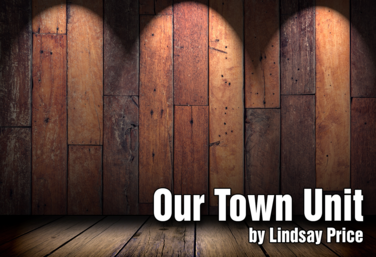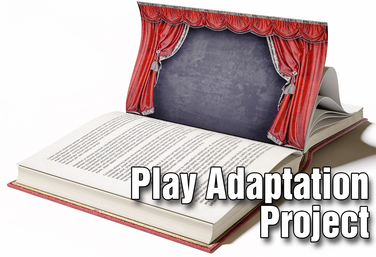View all Standards for British Columbia, Canada
explain how a central image contributes to a unified work

UNIT
Aristotle's Elements
by Lea Marshall
Aristotle was a huge fan of the theatre. He philosophically believed in it and argued with other great thinkers at the time about the necessity and good results of theatrical pursuits. This makes him a great topic for a drama classroom unit.
Aristotle identified six elements that needed to be in a play for it to be worthy: plot, thought, character, diction, spectacle, and sound. This unit by Lea Marshall focuses on and offers exercises for each of Aristotle’s elements - from using fairy tales to examine plot, to re-imagining movie trailers to explore music.
Read More
about Aristotle's Elements
Read Less
about Aristotle's Elements

UNIT
Our Town Unit
by Lindsay Price
This is a read, discuss, and apply literature unit. Students will study the play Our Town by Thornton Wilder.
Our Town is often referred to as “nostalgic.” It’s seen as an antiquated look at a moment in time. But this play is called Our Town, not My Town. What’s happening in Grover’s Corners happened in the past, the distant past, in our present, and even in the future. The themes of the play—the ordinary versus universality, the concept of time, the cycle of life, the ignorance of humanity to the eternal—these are just as relevant in the twenty-first century as they were when the play was written.
The purpose of the unit is not to have students recall knowledge about the play. Students will be able to identify, articulate, and dramatize text themes and concepts and compare/contrast these concepts to their own experiences.
Read More
about Our Town Unit
Read Less
about Our Town Unit

UNIT
The Crucible Unit
by Lindsay Price
This is a research, read, discuss, and apply theatrical literature unit. Students will study the play The Crucible by Arthur Miller.
The Crucible is Miller’s most produced play. There are hundreds of high school productions each year, and the play is in many high school curricula. As with every Miller work, there is much to discuss and many rich themes to explore.
The unit is divided into three sections. Each section is a complete set of lessons. You can choose to do all three sections, or if you have your own way to teach the play, you can pick and choose exercises.
Read More
about The Crucible Unit
Read Less
about The Crucible Unit

PD COURSE
Play Adaptation Project
by Lindsay Price
Adaptation is a fabulous classroom project: it requires students to analyze, adapt, modify, plan synthesize, devise. All the higher order thinking skills.
But you can’t just throw a narrator into a script and call it a day. You have to have a preparation process leading up to the writing process.
In this course you will learn practical exercises and a path to prepare your students to take on their own adaptation project. We’ll look at the guidelines to adaptation, things to think about when choosing a text, how to analyze the source material and writing that first draft.
So join me, Lindsay Price, in the Play Adaptation Project.
Read More
about Play Adaptation Project
Read Less
about Play Adaptation Project

PD COURSE
Director's Toolbox 1: Teaching Students to Direct
by James Van Leishout
In this course, James Van Leishout explores why students should direct, and covers the first two tools in the director’s toolbox: self and the script. What background should every director have? Why should they learn to love research? What should happen in the first four reads of a script?
With every step along the way, there will be exercises and activities your student directors can take on before they step into the rehearsal process.
Read More
about Director's Toolbox 1: Teaching Students to Direct
Read Less
about Director's Toolbox 1: Teaching Students to Direct
View all Standards for British Columbia, Canada Standards Master List